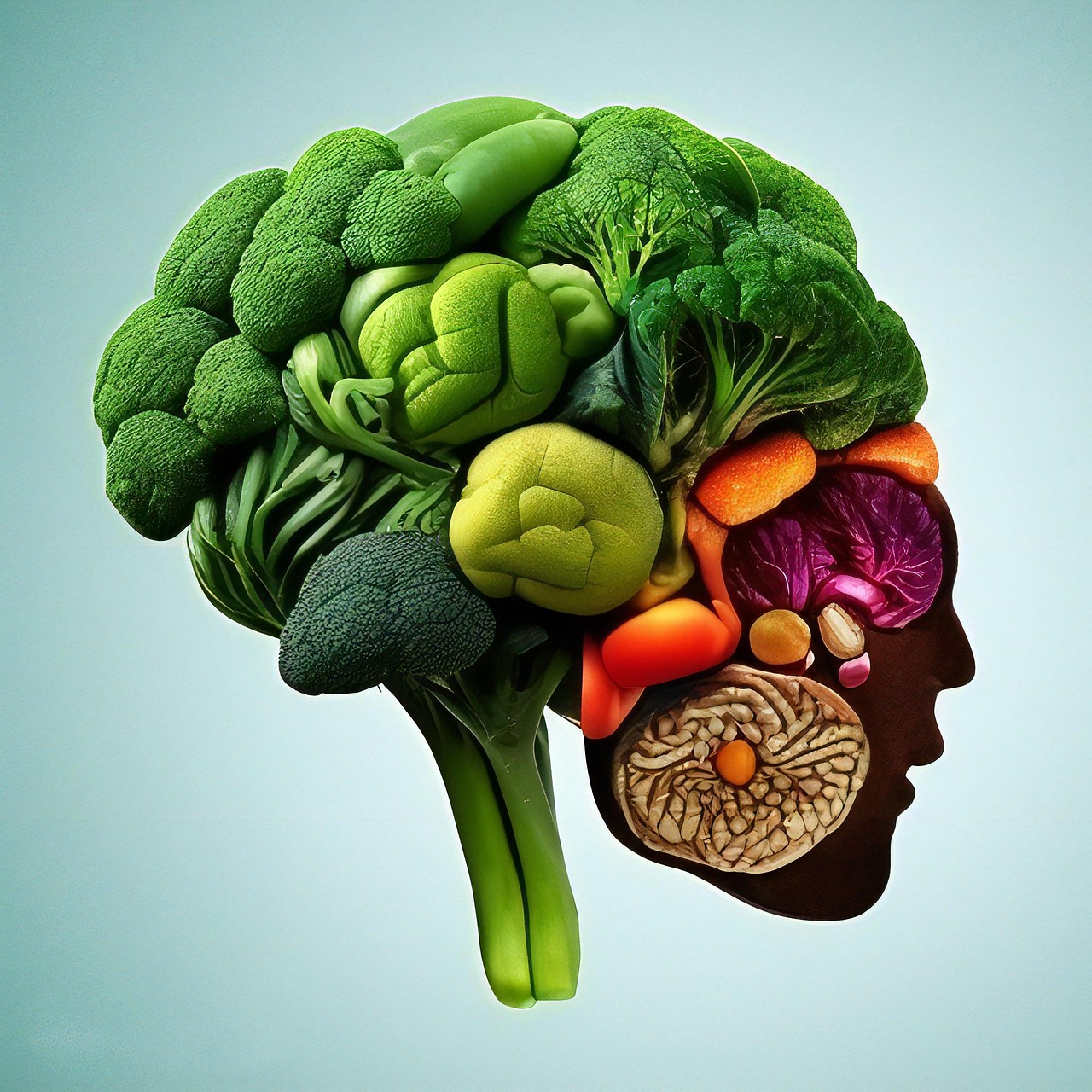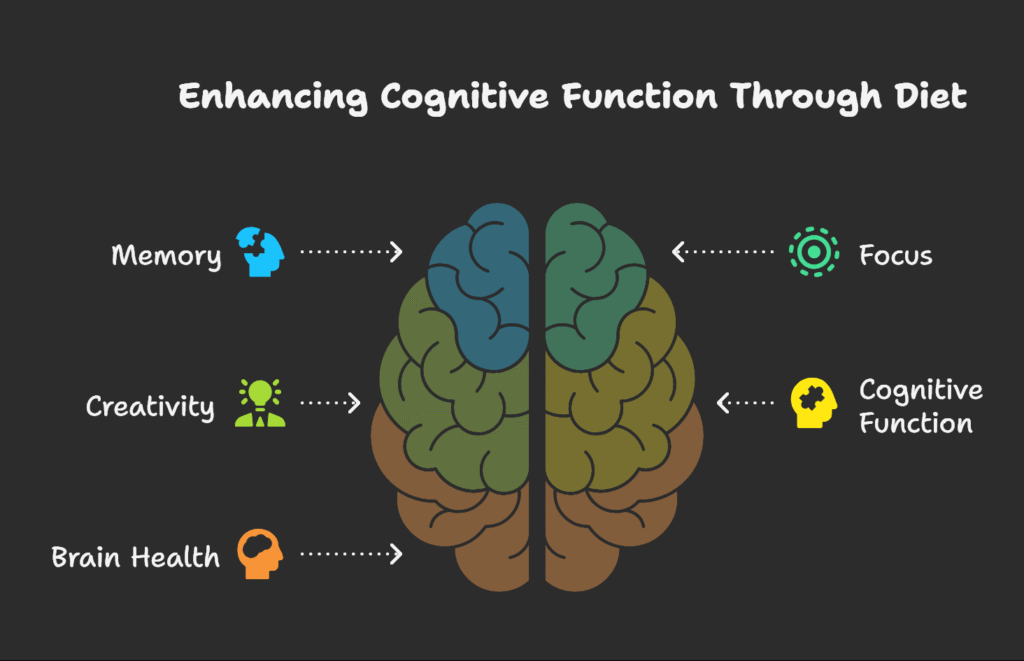
In today’s fast-paced world, having a sharp and focused mind is essential for success in various fields. Whether you’re a student preparing for exams, an entrepreneur running a business, or a creative professional looking for inspiration, what you eat can significantly impact your brain function. In this article, we will explore the best brain foods that can help boost cognitive performance and enhance productivity.
Top Brain Foods
1. Fatty Fish
Why it’s good for the brain: Fatty fish, such as salmon, trout, and sardines, are rich in omega-3 fatty acids, particularly EPA (eicosapentaenoic acid) and DHA (docosahexaenoic acid). These fats are crucial for brain health, as they make up a significant portion of brain cell membranes.
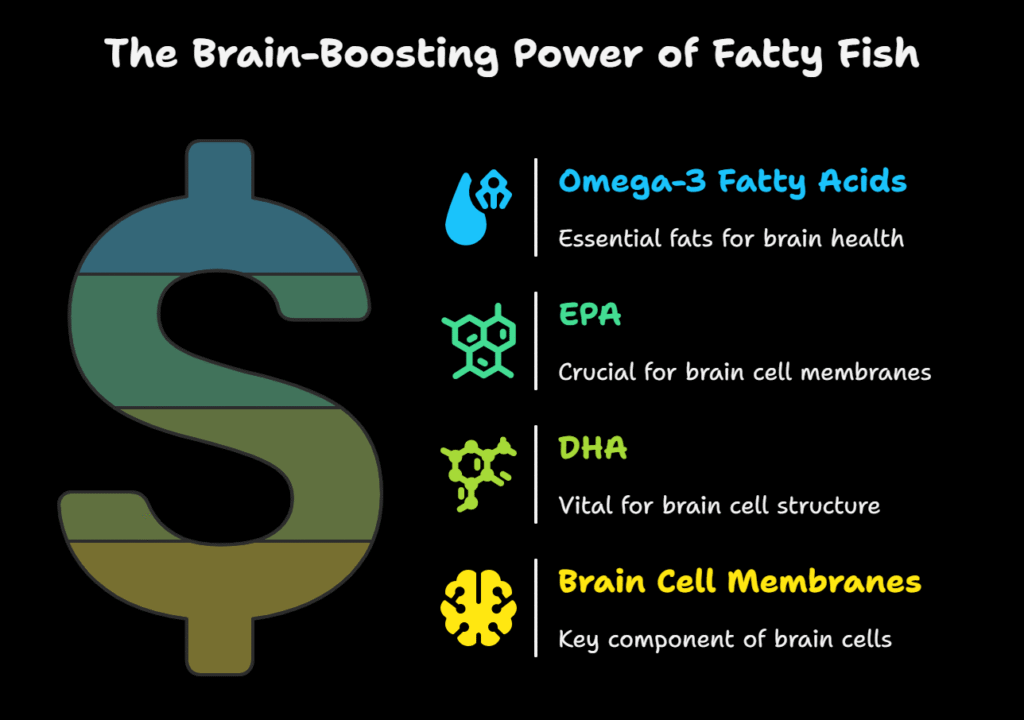

Benefits:
Mood Regulation: These fatty acids have been shown to have mood-boosting effects, reducing the risk of depression and anxiety, which can hinder cognitive function.
Improved Memory: DHA is linked to improved memory function and cognitive performance.
Enhanced Focus: Omega-3s can help improve attention span and concentration.
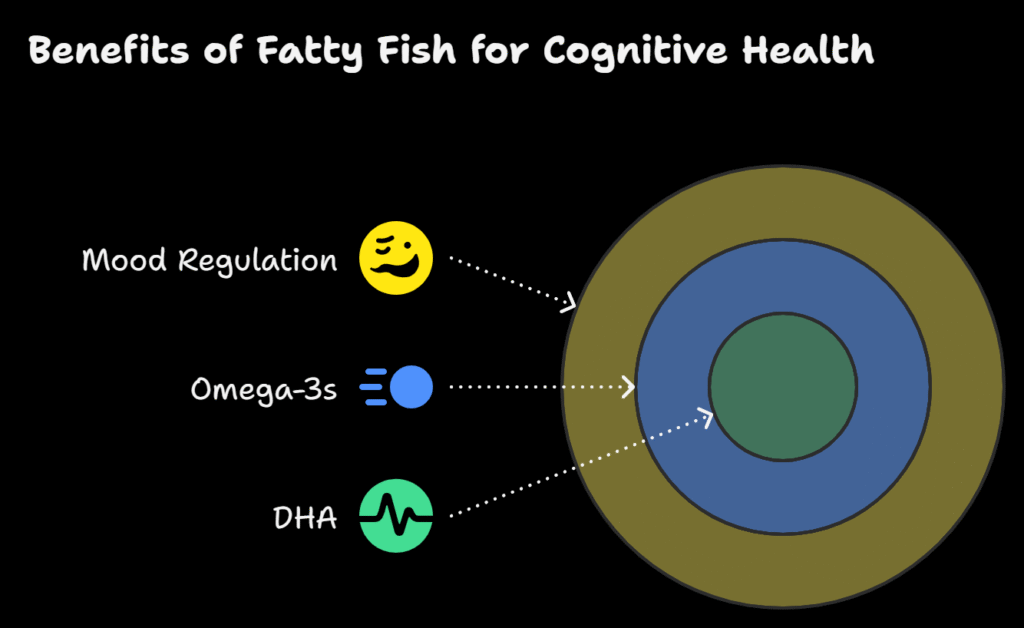
How to incorporate:
Aim to eat fatty fish at least twice a week. You can grill, bake, or pan-fry it. Alternatively, consider taking a high-quality omega-3 supplement if you don’t consume enough fish.
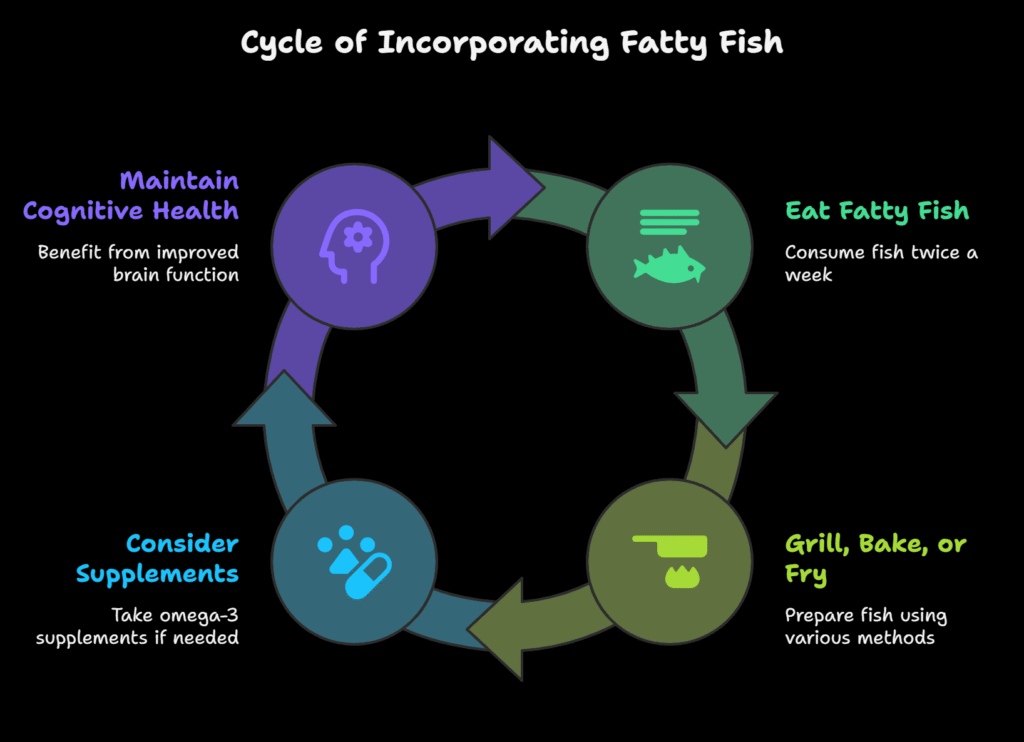
2. Berries
Why it’s good for the brain: Berries, including blueberries, strawberries, and raspberries, are packed with antioxidants, particularly flavonoids. These compounds protect the brain from oxidative stress and inflammation.
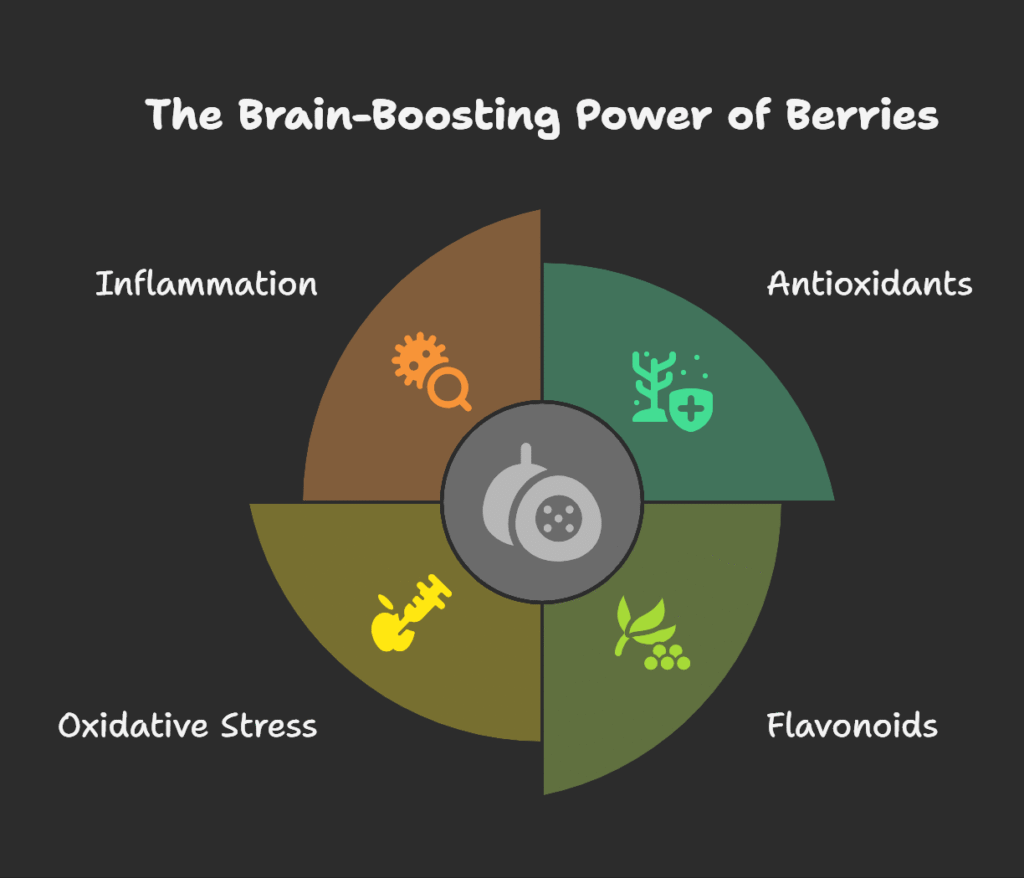

Benefits:
Improved Mood: Berries can also boost mood and reduce stress, contributing to better cognitive function.
Enhanced Memory: Flavonoids in berries can improve memory and learning.
Cognitive Protection: Antioxidants help protect brain cells from damage, reducing the risk of age-related cognitive decline.
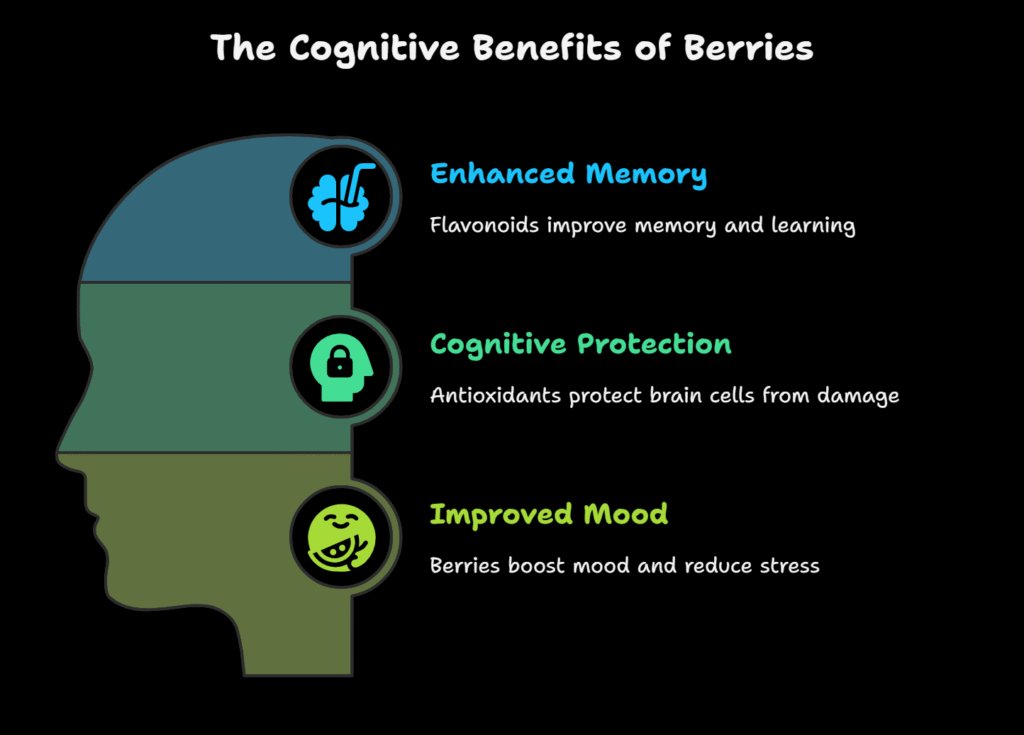
How to incorporate:
Add berries to your breakfast cereal, yogurt, or smoothies. You can also enjoy them as a snack or dessert.
3. Nuts and Seeds
Why it’s good for the brain: Nuts and seeds, such as almonds, walnuts, and pumpkin seeds, are excellent sources of healthy fats, protein, and antioxidants. They also contain essential nutrients like vitamin E and magnesium.
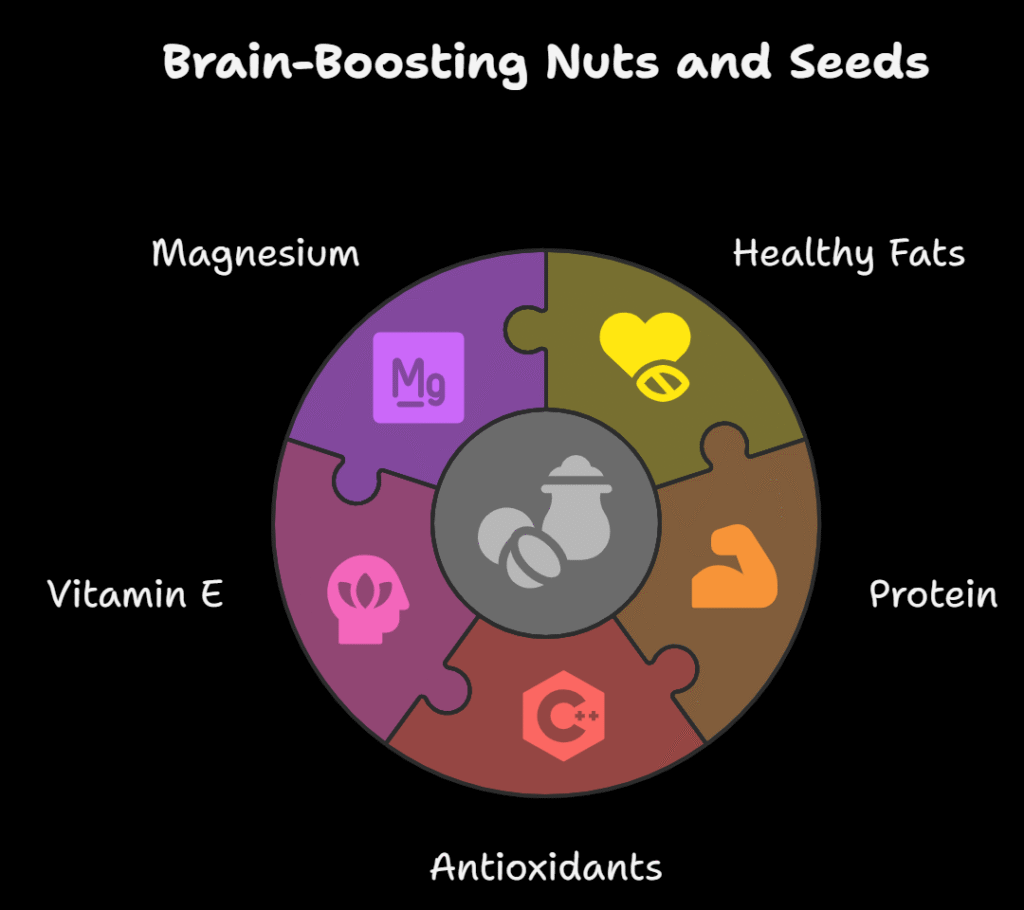
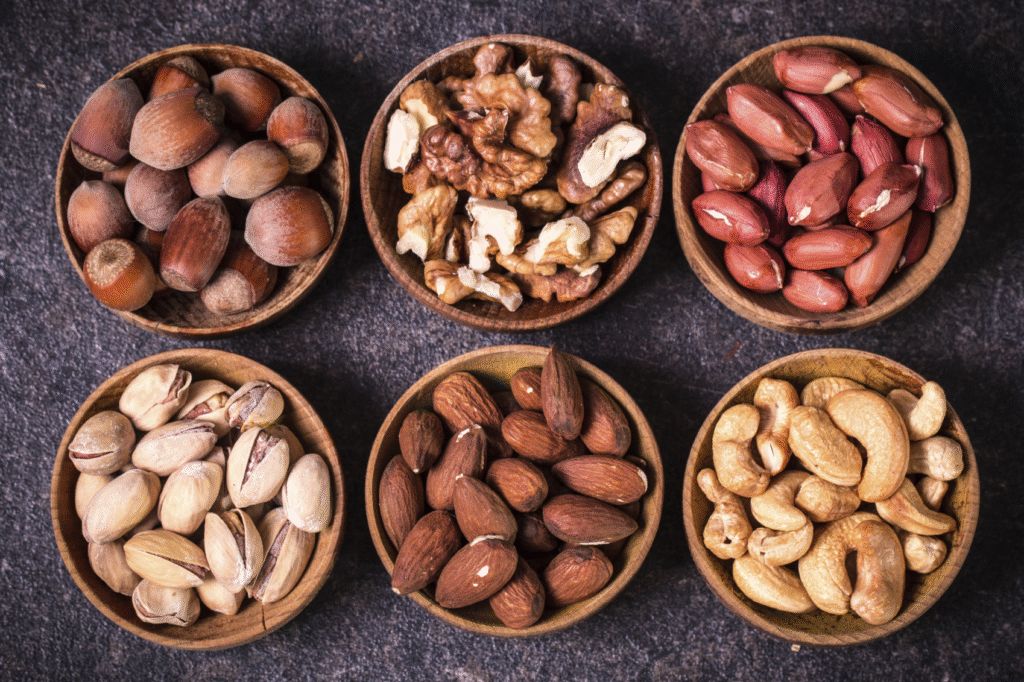
Benefits:
Improved Cognitive Function: Vitamin E protects brain cells from oxidative stress, while magnesium supports nerve function and energy production.
Enhanced Memory: Walnuts, in particular, are rich in omega-3 fatty acids, which can improve memory and cognitive performance.
Mood Regulation: Nuts and seeds can help stabilize mood and reduce anxiety, promoting a more focused and productive mindset.
How to incorporate:
Snack on a handful of nuts and seeds throughout the day. Add them to salads, yogurt, or trail mix.
4. Eggs
Why it’s good for the brain: Eggs are a nutritional powerhouse, containing choline, lutein, and essential amino acids. Choline is a precursor to acetylcholine, a neurotransmitter crucial for memory and learning.
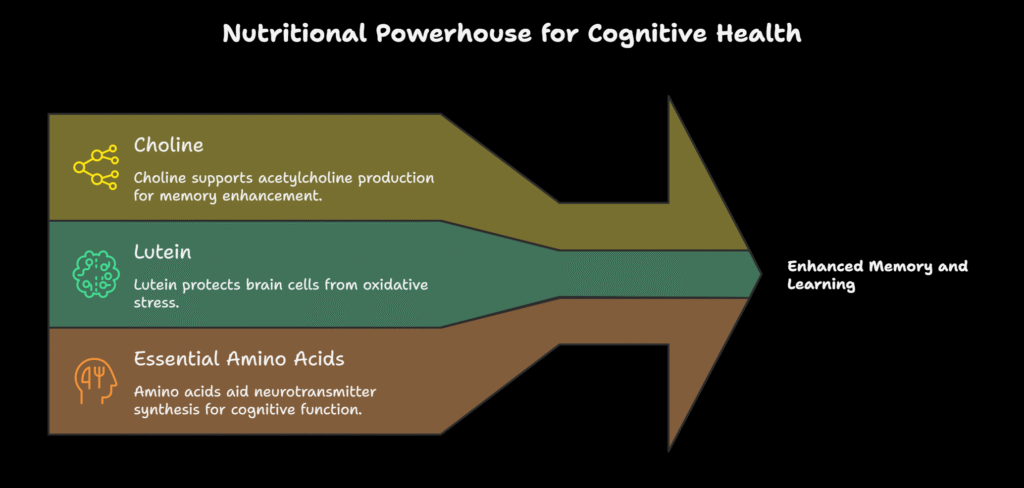

Benefits:
Cognitive Protection: Lutein, an antioxidant found in eggs, protects brain cells from damage.
Improved Memory: Choline supports the formation of new memories and enhances recall.
Enhanced Focus: Amino acids provide the building blocks for neurotransmitters that regulate attention and concentration.
How to incorporate:
Eat eggs for breakfast, lunch, or dinner. They can be scrambled, fried, boiled, or added to omelets and salads.
5. Green Tea
Why it’s good for the brain: Green tea contains caffeine and L-theanine, which work synergistically to enhance cognitive function. Caffeine provides a gentle boost of alertness, while L-theanine promotes relaxation and focus.
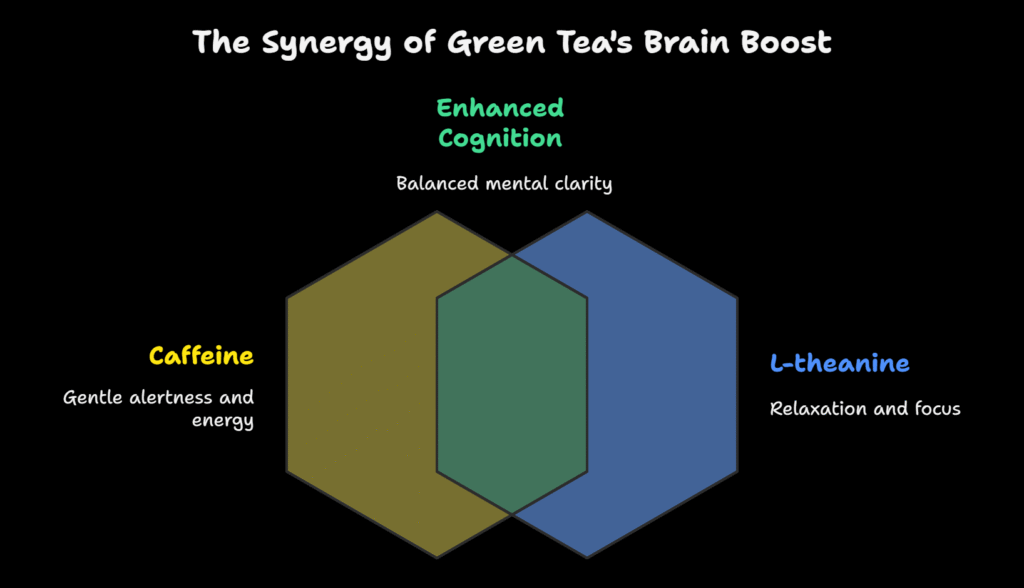

Benefits:
- Improved Focus: The combination of caffeine and L-theanine can improve attention span and concentration.
- Enhanced Memory: Green tea has been linked to improved memory and cognitive performance.
- Mood Regulation: L-theanine can reduce stress and anxiety, promoting a more relaxed and focused state of mind.
How to incorporate:
Drink a cup or two of green tea throughout the day. Avoid drinking it too close to bedtime, as the caffeine may interfere with sleep.
6. Dark Chocolate
Why it’s good for the brain: Dark chocolate, particularly varieties with a high cocoa content, is rich in flavonoids and antioxidants. These compounds protect the brain from oxidative stress and inflammation.
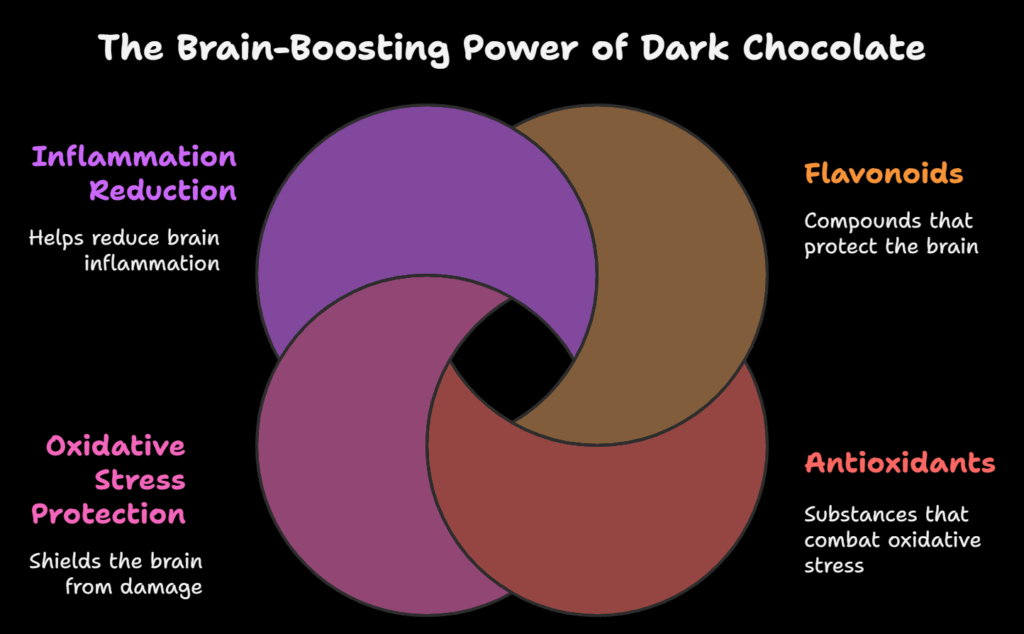

Benefits:
- Improved Memory: Flavonoids in dark chocolate can enhance memory and cognitive function.
- Enhanced Focus: Dark chocolate can improve blood flow to the brain, leading to increased alertness and concentration.
- Mood Regulation: Dark chocolate can boost mood and reduce stress, contributing to better cognitive performance.
How to incorporate:
Enjoy a small square of dark chocolate as a treat. Choose varieties with at least 70% cocoa content for the most benefits.
7. Turmeric
Why it’s good for the brain: Turmeric contains curcumin, a powerful antioxidant and anti-inflammatory compound. Curcumin has been shown to have numerous benefits for brain health.
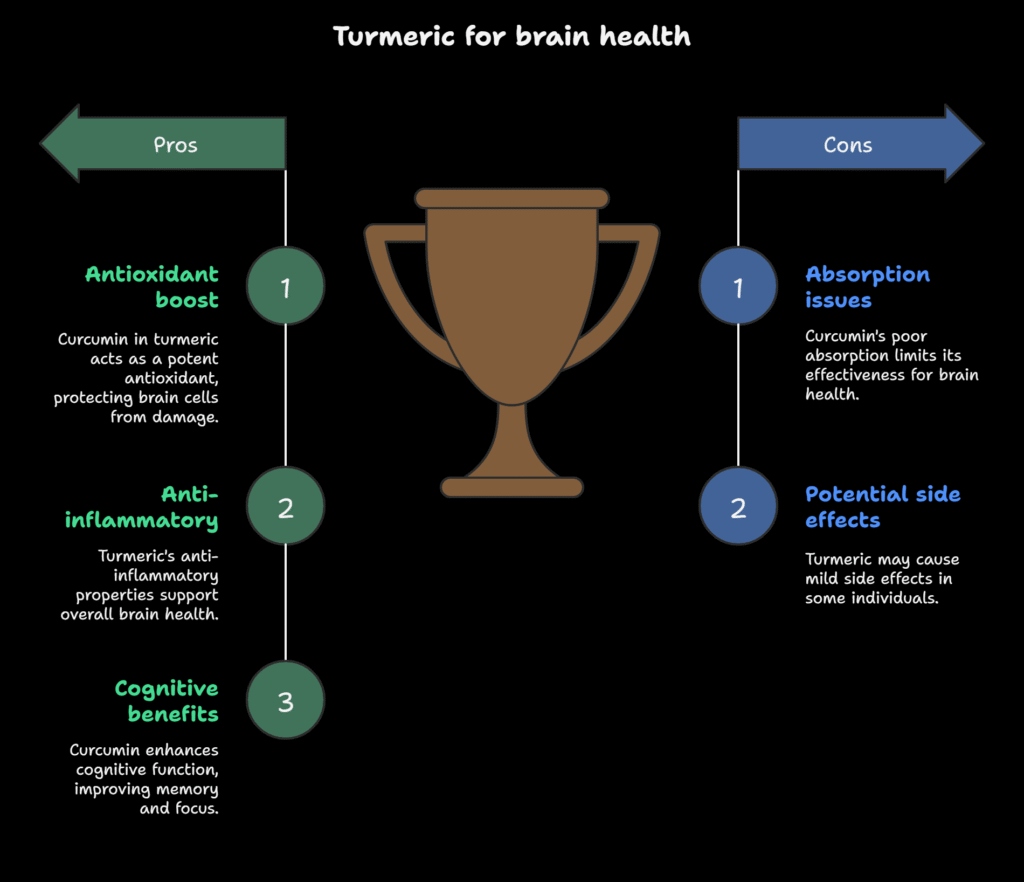
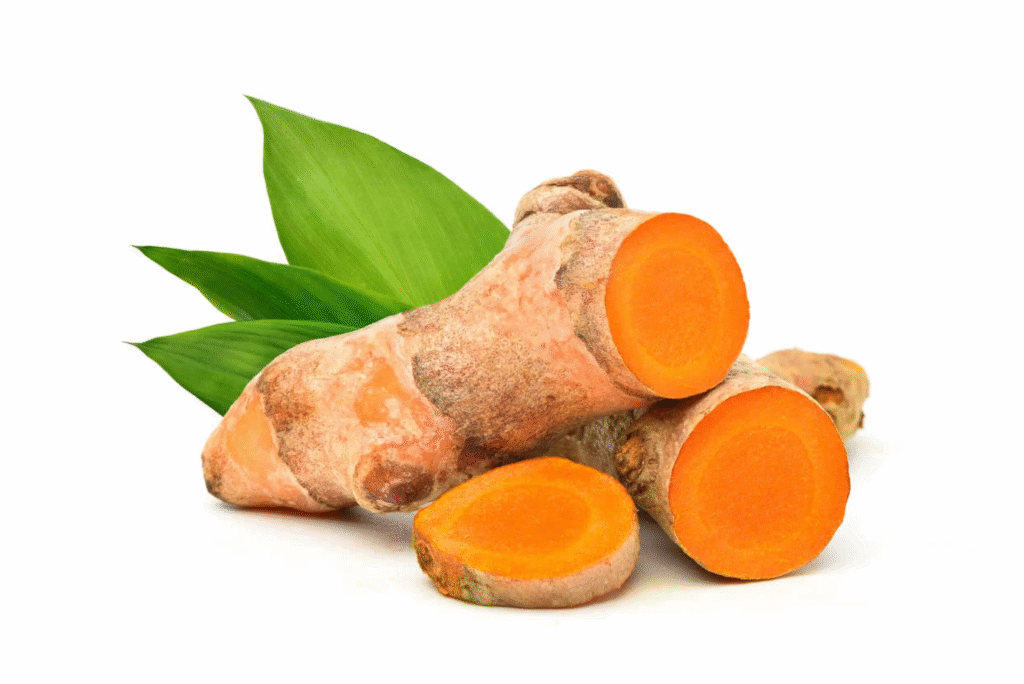
Benefits:
- Improved Memory: Curcumin can enhance memory and cognitive function.
- Cognitive Protection: Antioxidant and anti-inflammatory properties protect brain cells from damage.
- Mood Regulation: Curcumin has been shown to have mood-boosting effects, reducing the risk of depression and anxiety.
How to incorporate:
Add turmeric to your cooking, such as curries, soups, and stews. You can also take a curcumin supplement.
8. Whole Grains
Why it’s good for the brain: Whole grains, such as brown rice, quinoa, and oats, provide a steady source of glucose, the brain’s primary fuel. They also contain fiber, which helps regulate blood sugar levels and prevent energy crashes.
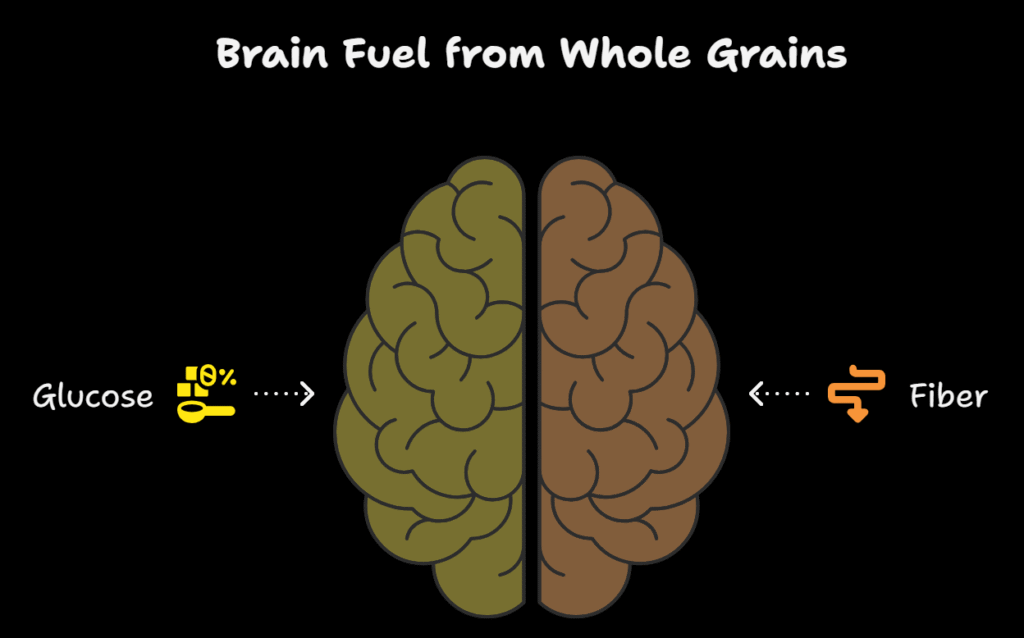

Benefits:
Sustained Energy: Whole grains provide a consistent source of energy for the brain, preventing fatigue and maintaining focus.
Improved Cognitive Function: Stable blood sugar levels support optimal brain function and cognitive performance.
Enhanced Mood: Whole grains can help stabilize mood and reduce anxiety, promoting a more balanced and productive mindset.
How to incorporate:
Choose whole-grain bread, pasta, and cereals. Add quinoa or brown rice to your meals.
Practical Tips for Incorporating Brain Foods
Combine with Lifestyle Factors: Pair a healthy diet with other lifestyle factors, such as regular exercise, sufficient sleep, and stress management techniques, to optimize brain health and cognitive performance.
Plan Your Meals: Plan your meals in advance to ensure you’re incorporating a variety of brain-boosting foods into your diet.
Snack Smart: Keep healthy snacks on hand, such as nuts, seeds, berries, and dark chocolate, to prevent unhealthy cravings and maintain energy levels.
Hydrate: Drink plenty of water throughout the day to stay hydrated, as dehydration can impair cognitive function.
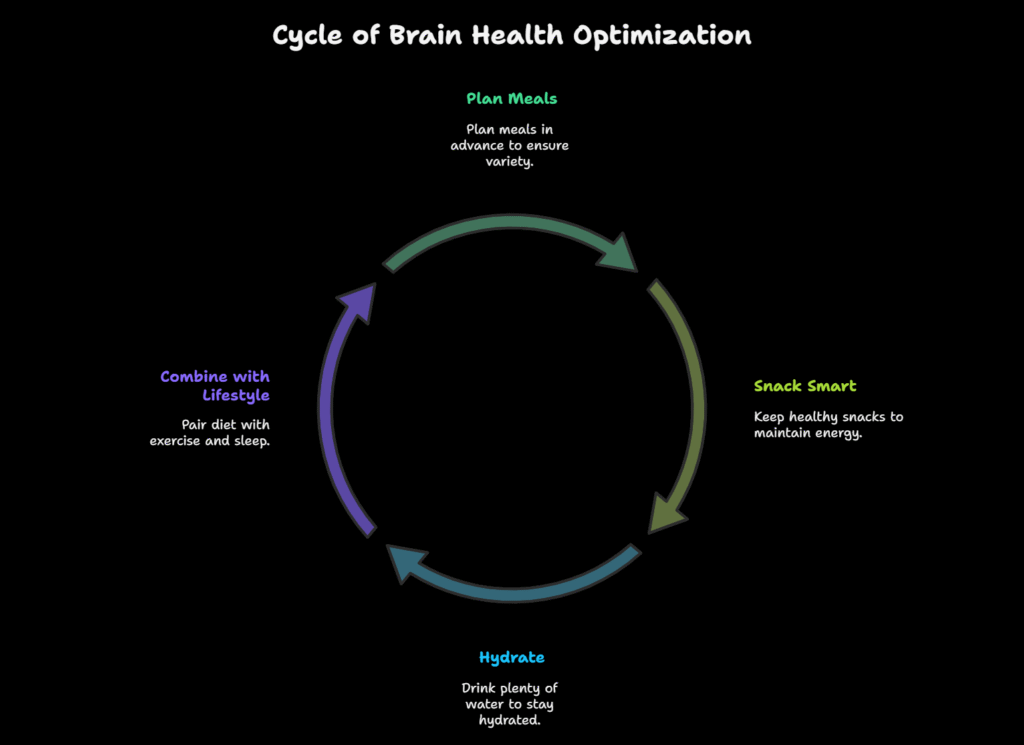
Conclusion
Nourishing your brain with the right foods is essential for students, entrepreneurs, and creatives who need to perform at their best. By incorporating these brain foods into your diet, you can support memory, focus, and creativity, helping you excel in your academic, professional, and creative endeavors. Remember that consistency is key, so make these foods a regular part of your eating habits to reap the long-term benefits for your brain health.
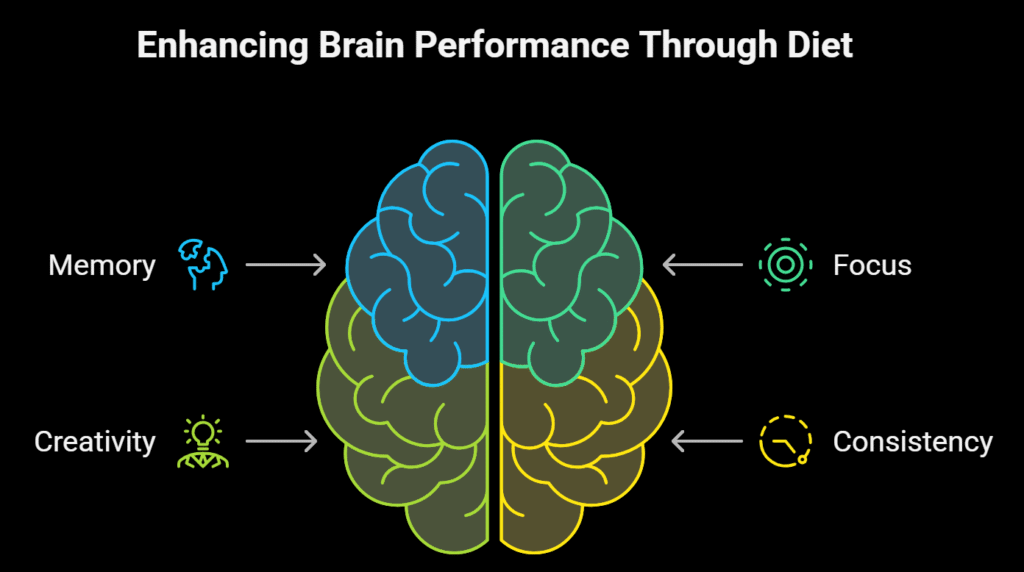
**FAQs:*
1. What are the best brain foods for improving memory and concentration?
Foods rich in omega-3s (like salmon and walnuts), antioxidants (like blueberries), and choline (like eggs) are excellent for supporting memory and focus.
2. How often should I include brain foods in my diet to see noticeable benefits?
Aim to include brain-boosting foods daily. Consistent intake over weeks helps improve cognitive performance and mental clarity.
3. Can supplements be used as a substitute for consuming brain-boosting foods?
Supplements shouldn’t replace a healthy diet but can enhance your focus and energy — especially during high-demand periods. Products like Java Brain can complement brain foods for faster results.
4. Are there any specific recipes or meal plans that focus on incorporating brain foods?
Yes! Smoothies with blueberries and flaxseed, omelets with spinach and avocado, and salmon quinoa bowls are all great examples of brain-friendly meals.
5. Are there any potential side effects of consuming too many brain foods on a regular basis?
Most brain foods are safe, but overconsumption (especially of caffeine or high-fat sources) can cause side effects like jitters or digestion issues. Moderation is key.

